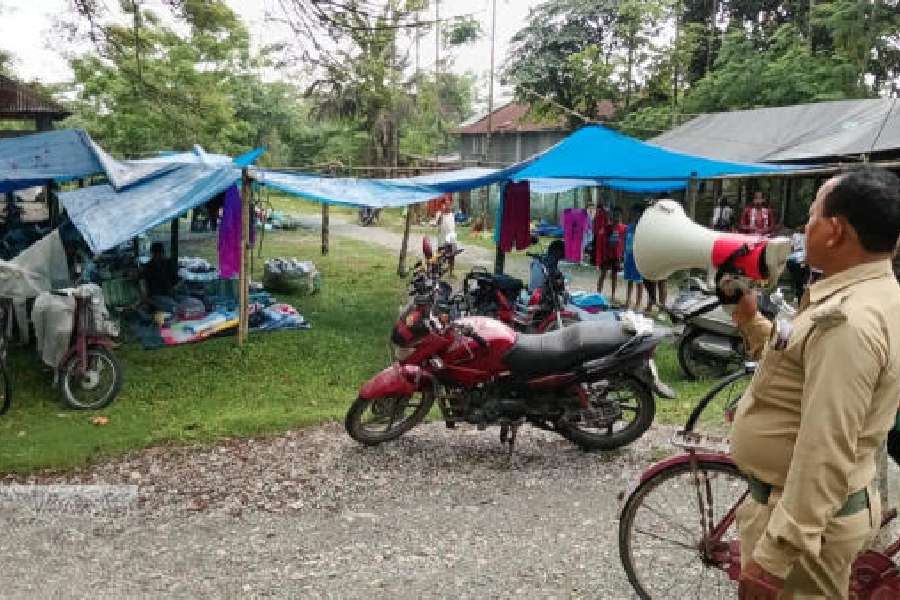Around 34 per cent of the elephant-attack victims were intoxicated, data collated by forest officials have revealed in Alipurduar, where at least 18 people died on being trampled by jumbos in the past three months.
“Our investigation suggests that 18 people have lost their lives in Alipurduar district during elephant attack in the last three months while around 34 per cent of those people were intoxicated,” said a forest source.
The alarming data has prompted forest officials to intensify awareness campaigns in villages on the fringes of forest areas, particularly around the Jaldapara National Park, where over 100 wild elephants are known to reside.
These elephants often enter human settlements at night in small groups to consume jackfruit and corn stored inside homes.
“We are doing everything possible to make people aware but people must understand the risks and follow instructions,” said Parveen Kaswan, divisional forest officer of the Jaldapara Wildlife Division.
In the wake of a recent incident in Kunjanagar, Falakata, where three persons, including an infant, were trampled to death by a wild elephant, forest officials have adopted a firmer approach.
“Patrol teams have been instructed to escort any intoxicated individuals found loitering in elephant-prone areas back to their homes in forest vehicles,” said a forest source.
Officials say that in many cases, human negligence contributes to fatal outcomes. In the Kunjanagar case, for instance, officials believe the tragedy could have been avoided had Manoj Das, one of the victims, not stepped out of his house in the dark.
Sources said that around 1am on Saturday, a wild elephant had moved into the Sabhapati More area of Kunjanagar on the outskirts of Falakata town from the Jaldapara National Park, and reached the house of one Ratan Das. Hearing the sound, his son Manoj, 32, came out. and was attacked by the elephant.
As Manoj shrieked and collapsed in the courtyard of his house, his mother Makhanrani, 65, who was cradling Manoj's infant daughter, ran out with the baby in her lap.
The elephant attacked and killed both of them.
Forest teams are now using public address systems in affected villages to discourage residents from leaving their homes after dusk unless necessary. Villagers are also being urged not to store haria (rice beer) or other alcoholic beverages in their homes, which may attract elephants and impair people's judgement in emergencies.
A total of 28 forest teams have been deployed across elephant depredation-prone areas to spread awareness and reinforce safety guidelines. Despite repeated warnings, officials report that people often emerge from their homes when elephants enter villages, hindering forest personnel from managing the situation effectively.
“If anyone suspects an elephant has entered the locality, they should stay indoors and alert the forest department immediately instead of going out,” said a forest official.










